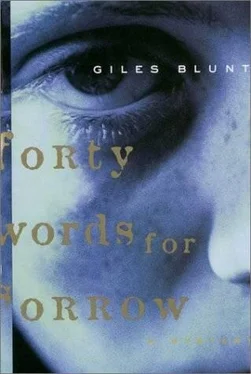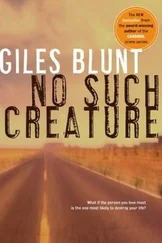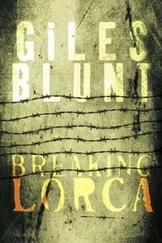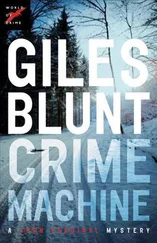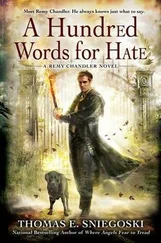Delorme could not miss the change in tone. They weren't talking about Pine-Curry, now. "I think he's just pissed off that you didn't keep him informed."
"Yeah. You're probably right. How's he doing in your own…"
"Fine. Nothing so far."
"Finances?"
"Nothing back, yet. The banks don't like to part with information. But my impression, I don't think-"
"I don't want your impressions, Delorme, and neither does the chief. We all have the impression that Sergeant John Cardinal is a first-class detective. We all have the impression that he's straight as an arrow. So, thank you, but I don't need any more impressions. What I need is a few solid facts- and not just rumors- that will explain to me how Kyle Corbett can slip through our fingers three separate times. Cardinal wants to lay it off on Corporal Musgrave and his merry men. Fine. But how does an Algonquin Bay cop afford a house on Madonna Road? And how does an Algonquin Bay cop send a daughter to Yale? Do you have any idea what the tuition is at Yale?"
"About twenty-five thousand Canadian dollars. I already checked."
"That includes residence fees?"
"No, sir. That's just tuition. Food, lodging, books and supplies- all that brings it to about forty-eight thousand a year Canadian."
"Jesus."
A Gray Coach bus turned the corner with a roar and pulled into the station, twirling capes of snow in its wake.
Passengers disembarked stiffly, some exchanging hugs with waiting relatives, others making straight for the pay phones, still others rushing toward the taxi stand. A small knot of people gathered around the belly of the bus from which the driver began to deliver luggage like a litter of puppies. Diesel fumes billowed around their feet.
The driver pulled out a guitar in a hardshell case and handed it to a thin youth shivering in a thin parka. He had long hair that he had to keep flicking out of his eyes. His eyes were round, his eyebrows high and arched, as if life were taking him by surprise. He hefted an enormous knapsack onto his back, picked up his guitar, and went inside to the bank of luggage lockers; it took two to stow his stuff. Then, holding his thin parka together at the throat, he went out to the taxi stand. He bent over and talked to a driver, then with one last flick of his hair, got in.
The cab was the last one at the stand. There was only one other car in the bus station parking lot- a gray Pinto near the entrance. All the Toronto passengers had cleared out by now, but as the taxi pulled out of the lot, the gray Pinto- motor running, windows fogged- remained by the DO NOT BLOCK ENTRANCE sign, patiently throbbing.
The cab drove exactly four blocks downtown, made a left, and let the boy out in front of Alma's Restaurant. He made his way through the snowdrifts like a high-wire artist, placing one foot carefully in front of the other. Snow melted in his shoes; his boots were in the knapsack back at the station.
He was the restaurant's only customer. On a small TV screen behind the counter, Chicago was playing the Canadiens. The bearded bear who took his order scarcely took his eyes off the game. When he brought the food, cheers and organ notes cascaded from the TV. "Damn," the bear muttered. "That better not be Chicago."
"I was gonna go out for a beer or something," the kid said. "Can you tell me where young people hang out around here?"
"How young? My age?"
"Mine."
"Try the St. Charles." The bear waved a paw like a traffic cop. "Make a right on Algonquin. Go two blocks till you reach Main. It'll be across the street."
"Thanks."
The restaurant was about what you'd expect a cabdriver to recommend: vinyl banquettes, Formica tables, plastic plants everywhere, and, despite the name, no Alma in sight. The boy sat at the counter looking out at the silent street. The red neon of the diner's sign turned the falling snow bright pink. Chances of finding any excitement were looking slim. Nevertheless, when the kid had finished his hamburger, he headed out to find the St. Charles.
ELDERLY inhabitants of Algonquin Bay may remember the days when the St. Charles was one of the city's better hotels. For decades, its location at the elbow of Algonquin and Main drew visitors who wanted to be right downtown, as well as tourists looking for easy access to Lake Nipissing, just two blocks south. The train station was less than five minutes away on foot, so for passengers arriving from Quebec City or Montreal, it would be the first building of any size they'd see. The St. Charles in that earlier incarnation prided itself on pleasing both tourist and businessman with charm, convenience, and first-class service.
Unfortunately, that day had come and gone. When the St. Charles could not compete with the cut rates charged by such self-service enterprises as the Castle Inn or the Birches Motel, it converted its upper stories into small, oddly shaped apartments that now housed mostly transients and ne'er-do-wells. All that remained of the former hotel was the bar downstairs, the St. Charles Saloon, which retained nothing of its original elegance and was now the establishment where the young of Algonquin Bay learned to drink. The management wasn't overly strict about checking driver's licenses, and they served beer in enormous pitchers.
The kid, whose name was Keith London, was standing at the bar, smoking and looking around in the slightly anxious way of a stranger. The St. Charles Saloon was essentially a warehouse divided by two long tables where boisterous parties of young folk were making an enormous amount of noise. Along the walls, smaller groups of drinkers perched around tiny, disklike tables. Carved above a door beside the bar a sign, the remnant of an earlier era, said LADIES AND ESCORTS ONLY. A multicolored jukebox was blasting out Bryan Adams. Above it all hung the murky cumulus of a hundred cigarettes.
Keith London finished one beer and debated whether he should have another; that hamburger had been the only food he'd eaten since Orillia. The crowd looked as if it had passed the point where a newcomer might be welcomed. To his left a couple was discussing in harsh terms other people not present. To his right, a man stared in autistic wonder at the hockey game swirling across a silent TV screen. Keith's adventurous spirit began to wilt.
He ordered another Sleeman. If nothing interesting happened before he finished it, he'd head over to the motel the cabdriver had pointed out.
He was only about halfway through his beer when a man in a knee-length leather coat left the jukebox and came over to the bar. He shouldered his way between Keith and the couple next to him. The coat was like something you'd hide a shotgun under.
"Boring joint," he said, tipping the muzzle of his Labatt's toward the crowd.
"I don't know. They look like they're having a good time." Keith nodded toward the middle of the room from where gusts of laughter kept blowing.
"Idiots always have a good time." The man upended his beer, pressing it to his lips like a trumpet, and drained half at one go.
Keith turned away a little, feigning a sudden interest in the jukebox.
"Hockey. If you took hockey away, this country would shrivel up and die."
"It's a decent game," Keith said. "I'm not a fanatic about it, though."
"Why do Canadians do it doggy-style?" The man didn't look at Keith as he spoke.
"I don't know."
"So they can both watch the hockey game."
Keith left the bar and went into the men's room. When he was at the urinal he heard the door swing open behind him and then the creak of leather. There were several urinals available, but the man bellied up to the adjacent one. Keith washed his hands quickly and headed back to the bar; he still had more than half a beer left.
The man came back a moment later. He kept his leather-clad back to the crowd this time, and Keith had the feeling the man was staring at the back of his head in the bartender's mirror. "I think I've got stomach cancer," he said. "Something not right in there."
Читать дальше
Конец ознакомительного отрывка
Купить книгу
